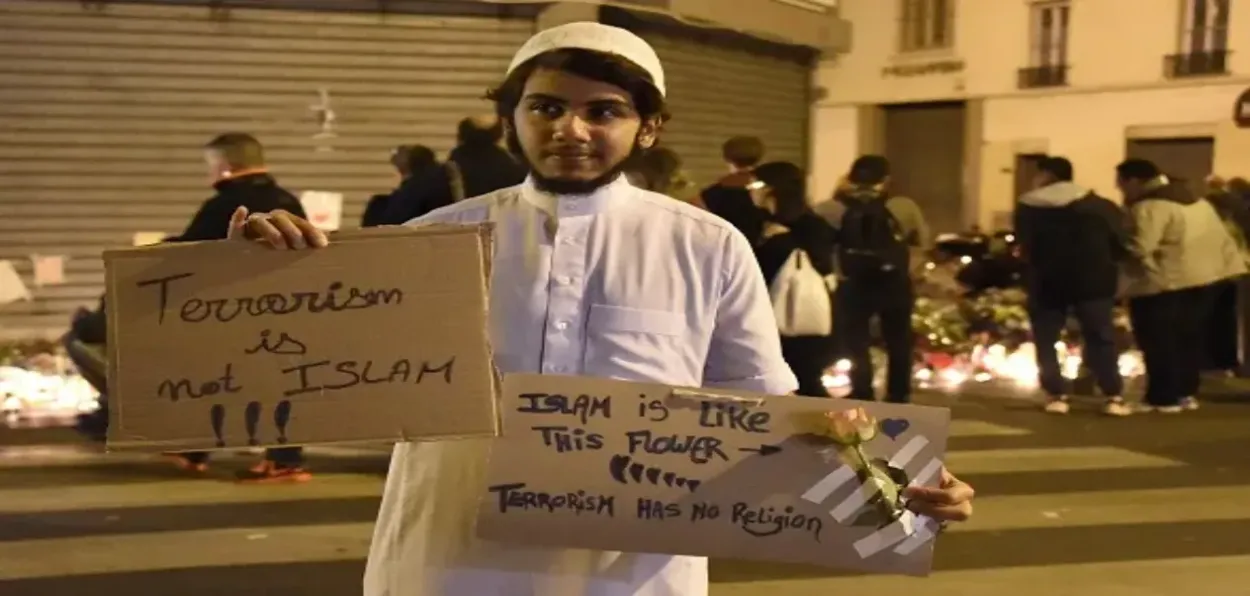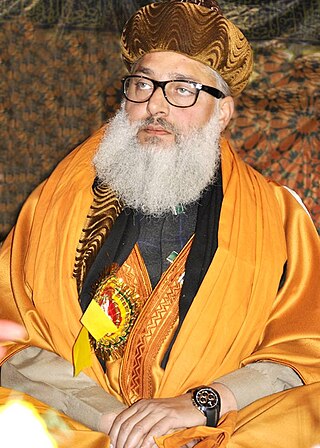
Ghulam Rasool Dehlvi
Prophet Muhammad’s son-in-law, Imam Ali ibn Abi Talib, the fourth Caliph of Islam according to the Sunnis and the first for the Shias, was killed by Ibn Muljim in the year 661 CE. The Kharijites, who had once supported Imam Ali but turned against him after he agreed to arbitration during the Battle of Siffin with Muawiyah, the governor of Syria. They first declared Imam Ali a ‘deviant’ and then ordered to kill him in Kufa’s mosque, misquoting a verse from the Qur’an: “Indeed, the sovereignty is only Allah’s” (4:64). They derived their justification for the assassination of Imam Ali.
They believed it was their duty to kill the Islamic caliph who, in their view, had deviated from Islam. Thus, the Kharijites who plotted to assassinate Imam Ali were the first terrorists in Islam’s history, who misused and misquoted the Qur’an for perpetrating an act of killing, and that too, the killing of the Most Innocent Imam.
In the same vein, Imam Hussain, the grandson of the Prophet, was first declared a ‘deviant’ and then killed in 680 CE at the Battle of Karbala by the forces of Yazid ibn Muawiyah, the Umayyad caliph. Hussain had refused to pledge allegiance to Yazid, whom he considered an unjust and un-Islamic ruler.
His refusal was spiritually and morally inclined, based on principles of justice, not rebellion against Islam. But the Yazidi-Umayyad propaganda machine used religious justifications and misquoted the Qur’anic verses to paint Imam Hussain and his family members and supporters as rebels and threats to the state. Some of the Yazidis formally labelled him a ‘kafir’ in the doctrinal sense.

The Holy Quran
Ubaidullah Ibn Ziyad, the Yazidi commander, assassinated Imam Hussain while he was praying and was in his position of prostration (Sajdah). Abd al-Rahman ibn Muljam, a member of the Kharijite sect, killed Imam Ali when he was leading the Fajr (dawn) prayer. Ibn Muljam struck him on the head with a poisoned sword.
This is a brief background of how the Kharijites and later Yazidis—the earliest terrorists and terror ideologues in Islamic history—justified their unjust killings and acts of terrorism by misusing and misquoting the Qur’an. In the same manner, Pakistani terror organizations and now even its military have distorted the Quranic verses to justify its drone offensive on India, calling it "Operation Bunyan al-Marsoos" — a military campaign that Pakistan said was its major retaliatory strike. Over-literalizing a Quranic verse to frame its offensive military escalation and drone actions as divinely endorsed, Pakistan has once again brazenly violated the spirit and essence of the Qur’an. In the very first place, misusing the Quranic verses to legitimize state aggression under the guise of religious unity and Islamic jihad is akin to the terror tactics of the Kharijites.
Conflating defensive unity in a just cause with offensive militarization for geopolitical state ambitions, Pakistani military has misused the Quranic phrase “Bunyan al-Marsoos” which appears in Surah As-Saff (61:4), and it translates to “a solid structure”, or “a solid wall of lead” or “a firm and compacted building”, or “a single structure joined firmly". The full verse goes as below:
"Indeed, Allah loves those who fight in His cause in a row as if they are a solid structure joined firmly." — Quran 61:4
This verse is widely understood to metaphorically emphasize unity, discipline, and steadfastness among believers, particularly in a collective struggle for a just cause, often spiritual or moral, and not just in a military expedition. Thu, the term "Bunyan al-Marsoos" is symbolic of cohesion and collective resolve, not aggression or unchecked militarism.
In his sharp rebuttal, All India Majlis Ittehdul Musliminchief Asaduddin Owaisi has rightly accused Pakistan of distorting the meaning of the Quranic phrase Bunyan al-Marsoos to serve its political narratives. He clearly stated:

“They [Pakistanis] are deliberately misinterpreting the essence of Bunyan al-Marsoos and ignoring the core message of the Quran. The verse preceding Bunyan al-Marsoos clearly states: ‘Why do you say that which you do not do?’ Yet, Pakistan chooses to overlook this and instead twists scripture to justify its stance.”
He further rebutted Pakistan’s selective reading of religious texts, which is not new, he said. “When Pakistani forces bombed Bangladeshi Muslims during the 1971 war, did they forget the spirit of Bunyan al-Marsoosthen?” Owaisi asked, referring to the brutal military crackdown in East Pakistan. “Their popular leader at the time, Zulfikar Ali Bhutto, referred to Bangladeshi Muslims as ‘pigs'.
Syed Mohammad Ashraf Kichhouchhwi, National President of the All India Ulama and Mashaikh Board and Chairman of the World Sufi Forum, has strongly condemned Pakistan’s distortion of Islamic teachings, particularly its misrepresentation of jihad to the global community. Speaking candidly, he said: "Pakistan has fallen into an ideological misguidance. It continues to misinterpret Islam and is engaged in a sinister campaign that tarnishes the image of religion across the world."
He made these remarks in response to Pakistan naming its military operation after a Quranic phrase — “Bunyanun Marsus” — from Surah As-Saff. "The verse is addressed to those who fight not for destruction, but for establishing justice and peace in the path of God. So, the question arises: is Pakistan fighting a religious battle? The answer is a resounding no. When did killing innocents become a religious act?" he asked.
Quoting Surah Al-Ma'idah (5:32), Syed Ashraf Kichhouchhwi reminded that "whoever kills an innocent person unjustly — it is as if he has killed all of humanity."
Referring to the killing of civilians in Pahalgam, followed by Pakistan naming its military operation after a Quranic verse, he said, “This clearly shows an attempt to blur the line between righteousness and tyranny.” He also criticized the growing trend of political Islam, where religion is used as a tool to pursue power, eroding its true spirit — the spiritual essence of divine love. “Extremism falsely done in the name of Islam is spreading globally, and terrorism is its outcome. In reality, these terrorists are born of misinterpretation of the Qur’an, as we see in Pakistan. However, Islam categorically rejects terrorism, injustice, and oppression,” he said.

Kichhouchhwi also warned that extremist elements in Pakistan are systematically misusing the Quran and Islam to radicalize the masses, especially children in madrasas. “They’ve turned madrasas into breeding grounds for terrorism, brainwashing young minds with distorted religious teachings,” he said.
He added that Pakistan’s support for terrorists is a clear endorsement of Yazidism and a betrayal of Quranic teachings. "The internal chaos in Pakistan — where mosques are blood-stained, Imam Bargahs are bombed, and even cemeteries are unsafe — is the direct result of this betrayal. Anyone standing in the way of power is either sidelined or eliminated in the name of religion."
Referring again to Surah As-Saff, Kichhouchhwi highlighted verses 2 and 3, which say: "O you who believe! Why do you say what you do not do? Most hateful it is in the sight of Allah that you say what you do not do." He said this reveals the deep hypocrisy in Pakistan’s actions: calling for a ceasefire on one hand while breaking it on the other; claiming jihad while openly supporting terrorism; pretending to stand against extremism while harboring extremists.
“Picking one verse of the Quran and ignoring the rest is, of course, not Islam. It's a manipulation of faith to unite people under the false banner of jihad for political purposes — a direct misrepresentation of the Qur’an", he concluded.
ALSO READ: Operation Sindoor is India's new policy against terrorism: PM Modi
He also criticized Pakistan’s treatment of minorities, calling it a blatant violation of Islamic principles. Kichhouchhwi urged the global community to recognize and confront extremist ideologies wherever they emerge, stating, "The world must work together to reform these distorted interpretations before they cause further harm."
The Delhi-based author writes on Islamic Affairs
